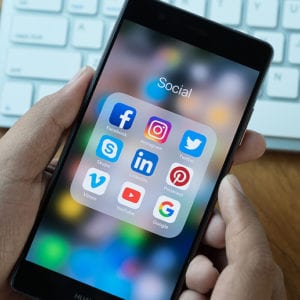
Device Filter Bills Reveal Inconsistency on Outsourced Censorship
Patrick Hedger
January 24, 2024
Conservatives have long argued that social media platforms and other tech companies have employed content moderation practices in ways that are biased against their viewpoints. As it turns out, there was some truth to the claims and reporting revealed government to be pulling the strings of private companies against certain legal speech. Unfortunately, in the noble attempt to protect children from potentially harmful online content, the same dynamic of outsourced censorship is being codified across the county.
While unfortunate for the culture of free speech, as a legal matter, companies are free to choose the kind of content they will host and the manner in which they will host it. The purchase of Twitter by serial entrepreneur Elon Musk helped reveal the fact that tech companies were not always acting independently when suppressing certain speech. In some instances, content moderation decisions were made following requests from government officials. In light of this information, the question of the legality of these content moderation decisions is not quite as clear cut. There is a legitimate argument that the government was outsourcing censorship practices to private firms in a manner inconsistent with the First Amendment. Conservatives and others impacted by these government-directed decisions against their legal speech via private platforms are right to be outraged. Policymakers are right to investigate the extent of this issue and institute checks that prevent government officials from leveraging private platforms to censor legal speech.
Unfortunately, many policymakers across the country (particularly those of conservative influence) are now engaged in a more overt, yet equally constitutionally-problematic form of outsourcing censorship to private firms. There is no better example than that of proposed device filter bills popping up in various state legislatures. These bills would force manufacturers of devices capable of accessing the open internet (such as smartphones and laptops) to automatically block access to adult-appropriate, but otherwise legal content by default. Users would have the option of switching off these controls at a later date.
The premise of these bills seems simple and harmless: Manufacturers should turn the existing parental controls on automatically and users can shut them off if they wish. There is no argument against devices and services having parental controls. Virtually every device manufacturer, online platform, and internet service provider (ISP) have them as options and provide them free of state coercion. Governments should be working with companies and citizens to educate about how to access and use these controls to protect children online. This is well within governments’ own speech rights. Turning these features on by default through the force of law, however, is inherently a restriction on otherwise legally protected speech. It is not unlike online platforms degrading the reach of social media posts at the request of various bureaucrats behind the scenes.
Boiled down to their core elements, device filter bills employ state power to coerce private companies to restrict the visibility of legal speech. These are the elementals relevant to the law and conservatives should be incredibly wary about setting an ugly precedent by codifying the same kind of outsourced state power over speech that has been previously used against them.
Further, given the constitutionally-problematic nature of these proposals, the likelihood for protracted litigation at significant taxpayer expense is high with a low likelihood of success. Existing Supreme Court precedent on age-related barriers to legal speech stands in plain opposition to default device filter bills (see Brown v. Entertainment Merchants Association, 564 U.S. 786 (2011)). Taxpayer resources would be better spent, to a greater and more immediate effect, on public engagement and education campaigns about existing, voluntary parental controls at the device, platform, and ISP level.
